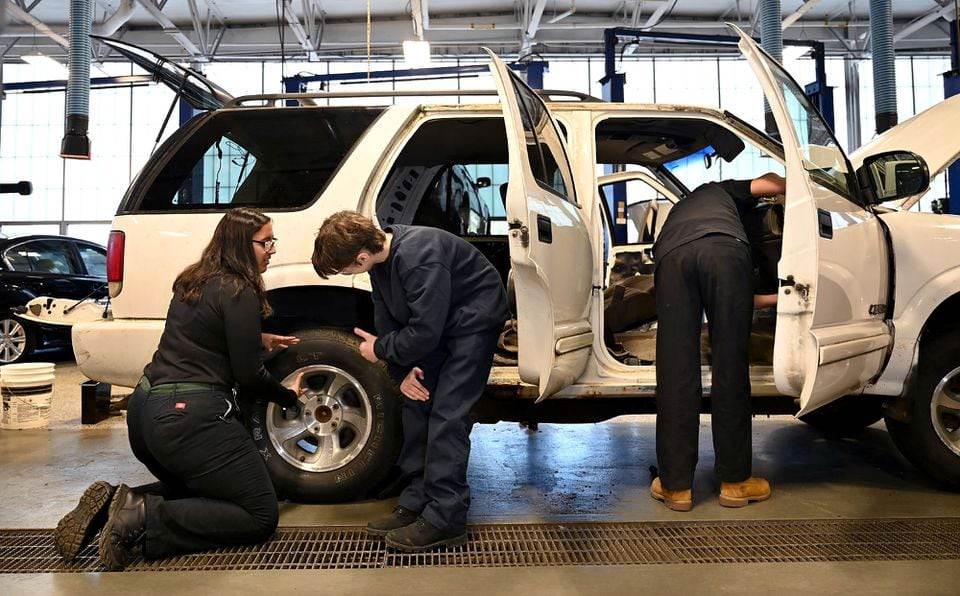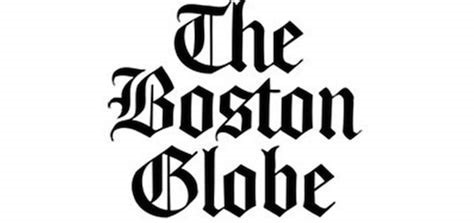Colleagues,
Released last evening by the Boston Globe.
David
Legislation to mandate an admissions lottery for vocational schools advances
on Beacon Hill with some changes
By James Vaznis Globe Staff, Updated February 26, 2024, 1 hour ago
 Lawmakers have moved toward requiring vocational schools to admit students via a lottery but would maintain some admissions criteria, limiting it to only attendance and discipline records. KEN MCGAGH FOR THE BOSTON GLOBE
Lawmakers have moved toward requiring vocational schools to admit students via a lottery but would maintain some admissions criteria, limiting it to only attendance and discipline records. KEN MCGAGH FOR THE BOSTON GLOBE
The Massachusetts Legislature has taken a major step toward requiring vocational
schools to admit students via a lottery, under a revised bill that is generating strong
opposition from vocational school leaders.
The bill, which was recently released by the Joint Education Committee, would
Lew Finfer of the Vocational Education Justice Coalition, which includes many civil
rights, community, and union organizations, said the revised bill is a good start, but he
expressed disappointment that lawmakers moved away from a blind lottery with no
admissions criteria, as outlined in the original bill.
“Vocational schools are public schools and should be equally open to everyone,” he
said, noting that traditional school districts and charter schools have to enroll students
without regard to any discipline or attendance issues.
The fight over diversity at vocational schools is part of a broader push by civil rights
advocates across the country to increase the diversity of public schools with selective
admissions criteria.
The bill, which was recently released by the Joint Education Committee, maintain some admissions criteria, but would limit it to only attendance and discipline records.
Currently, many schools consider academic grades, an interview, or other criteria that vocational school leaders believe are necessary to determine an applicant’s genuine
interest in their programs and their likelihood for success. But many social justice and education advocates argue the criteria blocks access for many students of color.
In Boston, civil rights advocates have focused on the city’s three prestigious exam schools, which admit applicants based on grades and test scores, and successfully
persuaded the School Committee in 2021 to group applicants together by socioeconomic factors to increase diversity. The effort has attracted a federal lawsuit
by a group of white and Asian parents, who are challenging the first attempt to diversify exam school enrollment by admitting students by grades and ZIP codes, which benefited Black and Latino applicants. The lawsuit has been unsuccessful so far, but the group plans to file an appeal with the US Supreme Court in the coming weeks.
Vocational school leaders are now taking their fight to the Ways and Means Committee, where the redrafted bill is probably headed next. In a Feb. 21 letter to Senator Michael Rodrigues, who co-chairs the committee, the Massachusetts Association of Vocational Administrators said a “one-size-fits-all lottery penalizes all schools” and its members remain adamantly opposed to the bill. The association argued that a state-mandated lottery would unnecessarily usurp local control and would disrupt operating agreements that individual vocational schools have with their local communities, many of which guarantee a certain number of seats per town. While a lottery could be run for each town, the association doubts it would increase diversity, given that the most diverse student populations are in urban centers while many of the outlying communities are less diverse.
More broadly, the association disputes that a statewide problem exists with the diversity of their student enrollment, except for a few isolated cases, and said the
biggest problem lies with the Legislature failing to provide them with more money to expand their programs so they can admit more students.
“Our schools are working hard to conduct our admissions processes as fairly and equitably as possible,” wrote Steven C. Sharek, the association’s executive director, in the letter. “Since admissions regulations were revised by the state in 2021, at least 97 percent of vocational-technical and agricultural high schools have made changes in their admissions policies, personnel, or training.”
Several vocational school leaders said the best way to increase diversity is through the targeted recruitment of students and gaining access to district schools with the most diverse students. “You need to recruit the right kids for the right reasons,” said Karen Maguire, superintendent-director of Tri-County Regional Vocational Technical High School in Franklin.
Vocational schools are considered valuable opportunities to lift low-income students out of a life of poverty. The schools offer a wide variety of programs that include building trades, automotive repairs, cosmetology, hospitality, culinary arts, Web design, engineering, biotechnology, and health-care-related jobs like nursing assistants.
According to state data, the racial composition of students who ultimately enroll at vocational schools is somewhat similar to those eligible to apply. For the 2022-23
school year, 58 percent of the 10,674 ninth graders who enrolled in vocational schools were white, slightly more than those eligible to apply and 42 percent were students of
color, slightly smaller than those eligible to apply.
However, not every vocational school is reflective of the students who are eligible to attend. Social justice and education advocates contend the schools could be more diverse,
noting that state data indicate the admissions process appears to benefit white applicants, who get in at much higher rates than students of color, 69 percent compared to 55 percent.
Senator Jason Lewis, Joint Education Committee cochairperson, said the redrafted bill was intended to be a compromise between those who want a blind lottery and those who want to maintain admissions criteria. He said the legislation is modeled somewhat after the admissions lotteries voluntarily implemented by Worcester Technical High School and Assabet Valley Regional Technical/Vocational School District in Marlborough, which have seen diversity increase. [Assabet Valley also recently stepped up efforts to recruit more diverse students. “We’ve seen positive impact from the changes those two schools made,” Lewis said of their use of a “modified
lottery” for admissions. “We felt that was a good way forward.”
Senator John Cronin, a Worcester Democrat who sponsored the admissions bill, said he was pleased the Joint Education Committee moved
the bill forward and supports
the admissions criteria the committee added to the redrafted bill. “I’m excited that it will get further consideration in the Senate,”
he said. “My sense is that things are coming to a boiling point.”
Jamie Gass, director of education at Pioneer Institute, a Boston-based think tank, said mandating a lottery would be a mistake. “State
and local officials trying to mess with successful voc-tech admissions policies should remember the Hippocratic Oath — ‘first, do no harm’ — when prescribing ill considered policy remedies,” Gass said in a statement, noting that the schools’ high academic
performance has been frequently held up by researchers as a national model.
Jamie Vaznis’ article is attached and below:
https://www.bostonglobe.com/2024/02/26/metro/massachusetts-vocational-school-admission-lottery/
David J. Ferreira
MAVA Communications Coordinator
DavidFerreira



